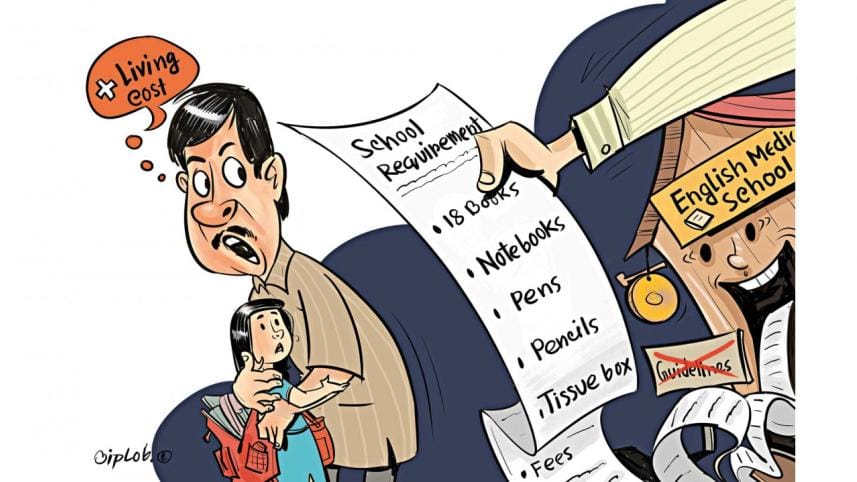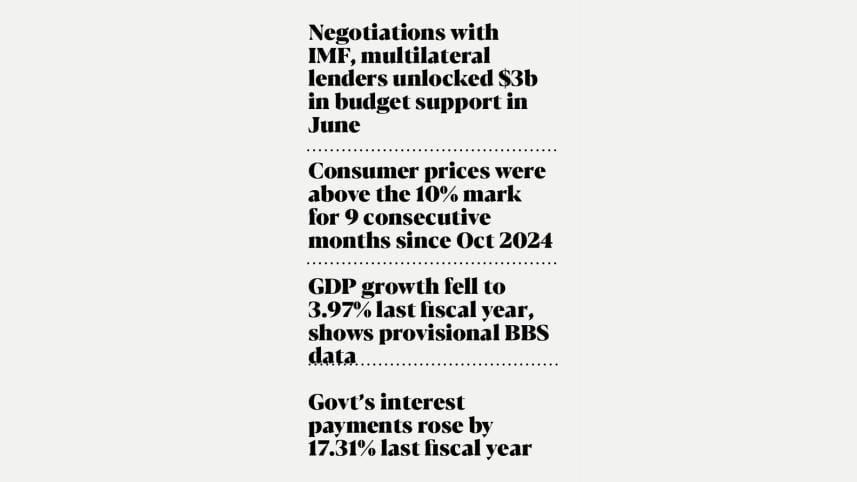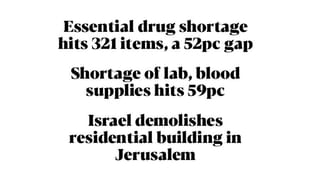English medium schools: When money matters most

English medium schools have been charging exorbitant admission and tuition fees in the absence of any guidelines and monitoring, making it a constant struggle for guardians, especially those belonging to the middle-income bracket, to continue their children's education.
The government does not have any control on these schools and it has not taken any initiative yet to regulate these privately owned educational institutions. And the indifference of authorities concerned leaves the scope for the schools to charge at whims.
"My son's school is increasing fees every year while the costs for books and stationaries are also going up simultaneously. But it seems there's no authority to look into these issues," said Ahmed Raihan, whose son studies at an English medium school in Dhanmondi.
The Covid pandemic made the situation even more difficult for many parents with some having to discontinue their children's education in such schools as they cannot bear the ever-increasing cost of education.
Take Sadman (not his real name) for an instance. He had to discontinue his school in his eighth grade in late 2020 due to increasing expenses.
"My father incurred a heavy loss in his business during the pandemic. He could not support my schooling any longer. So, I decided to prepare and sit for the O-level exam as a private candidate," he said.
"Apart from the Tk 200,000 admission fee, I was required to pay Tk 25,000 monthly tuition fees. There are various other expenditures such as fees for coaching centres and books and stationery products."
This correspondent talked to the admission offices of eight English medium schools in Dhanmondi, Gulshan and Uttara and found their admission fee ranges from Tk 150,000 to Tk 300,000 on average per year. However, some high-end institutions charge more than Tk 500,000 admission fee per year.
The monthly tuition fees of most of the English medium schools range from Tk 8,000 to Tk 30,000. Besides, there are various other associated expenditures apart from admission fee and tuition fee.
In the beginning of an academic year, the students have to purchase books, school uniforms and all stationery products required in a year from specific shops designated by the school authorities. This also costs them a huge amount of money per academic year depending on the class they study in.
According to a guardian whose son is a fourth grader in an English medium school, "I have to purchase 56 notebooks, 18 books, a lot of pens, pencils and even tissue boxes and submit the items to the school. The authorities said that they will store these items against my son's ID number and give him those time to time."
"I think," he added, "they have forced us to purchase much more items than required and make a considerable profit from these forced purchases."

Then comes the cost for coaching centres.
According to students and guardians, many of these institutions are failing to provide quality education, because of which a huge number of students have to go to coaching centres.
Besides, there is no apex body or umbrella association for the English medium schools where parents can go with complaints.
AKM AshrafUl Haque, president of Bangladesh English Medium School Parents Forum, said, "Most of the students of English medium schools have to depend on coaching centres for subjects like science, language, accounting and economics. We pay Tk 7,000 to Tk 10,000 per month per subject."
On an average, a family has to pay Tk 200,000 to Tk 400,000 per year for their children's education in an average English medium school. In 12 years of education, a family has to shell out a huge amount of money.
Ashraful said, "Many middle and upper middle-class families are opting for English medium education for their children amid falling quality of Bangla medium schools and overall education system. Due to a lack of government control, English medium schools have turned their schools into business centres."
In fact, the Board of Intermediate and Secondary Education, which gives registration to English medium schools, does not have any regulatory authority over these institutions.
According to the Board of Intermediate and Secondary Education, Dhaka, there are around 4,500 English medium schools in the capital whereas only 142 of them took registration from the board.
Prof Tapan Kumar Sarkar, chairman of the board, said, "It is true that most of the English medium schools in Dhaka and Chattogram are not registered. Actually, we cannot take any steps to regulate these schools or to take steps against the unregistered schools due to a lack of legal and organisational mechanism.

"When a school applies for registration, we require them to teach Bangla and Bangladesh studies as dictated by the National Education Policy-2010. If they follow these guidelines, we register them. However, as there is no law about English medium education, we do not have the organisational mechanism and capacity to monitor and control these institutions."
He also said the Ministry of Education is drafting a guideline to regulate English medium institutions and the process will be completed within a year or so.
On April 23, 2014, the High Court ordered English medium schools to stop taking session fees or readmission fees following a writ petition by parents of two students. Then on May 25, 2017, the HC passed the verdict banning session or re-admission fees and issued 17 guidelines to regulate operations of English medium schools.
However, the Appellate Division of the Supreme Court on January 3 last year stayed 16 out of 17 directives of the HC. The only directive that was exempted from the stay order was the directive to the school managing committees to celebrate cultural heritage of Bangalee nation in the schools.
This stay order came as a massive blow to students and guardians who have been advocating for controls on these institutions.
Ashraful said, "English medium schools are now taking session fees and various other fees in the absence of any restriction. The government initiative to regulate these schools which got momentum after the 2017 verdict slowed down again considerably."
Experts have opined for reforms and regulations in English medium education.
Mohammad Mojibur Rahman, associate professor of Institute of Education and Research (IER), Dhaka University said, "The government must decide on how they will provide education to its citizens. Will it be provided as a commodity or as a service? According to our constitution and laws, education is a right and thus it should be provided as a service.
"The government should form a supervisory body to manage activities of these private institutions. Formation of such a body is a precursor to smooth delivery of any service."
Prof Dr Siddiqur Rahman, former director of IER and one of the framers of National Education Policy-2010, said, "We have been advocating for an Education Act for a long time. Due to the lack of this act, we could not implement many positive initiatives in our education system, including reforming the English medium education and regulating coaching centres.
"Quality of teachers, school infrastructure, curriculum, co-curricular activities and role of the owners in managing schools should be categorically reviewed to reform these institutions."

 For all latest news, follow The Daily Star's Google News channel.
For all latest news, follow The Daily Star's Google News channel.
Comments